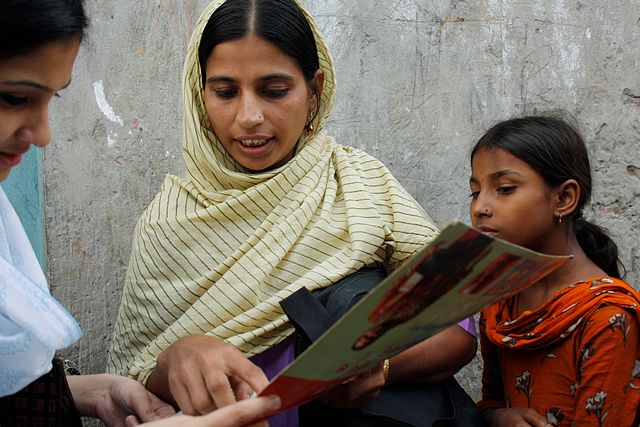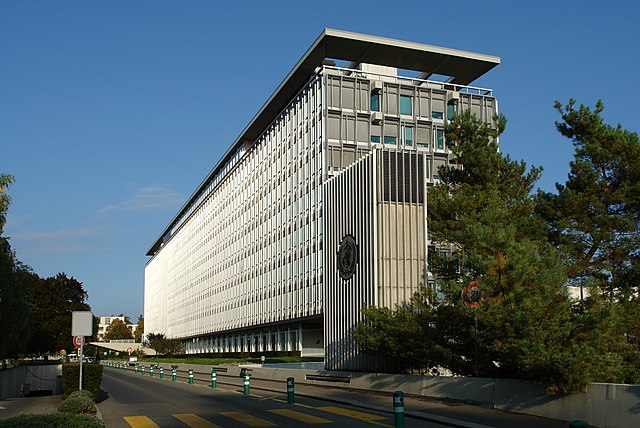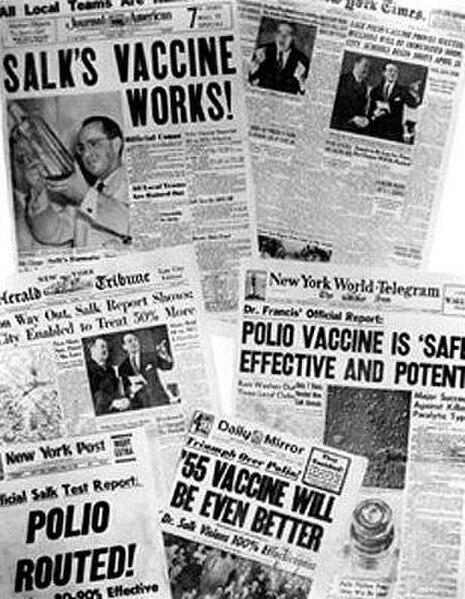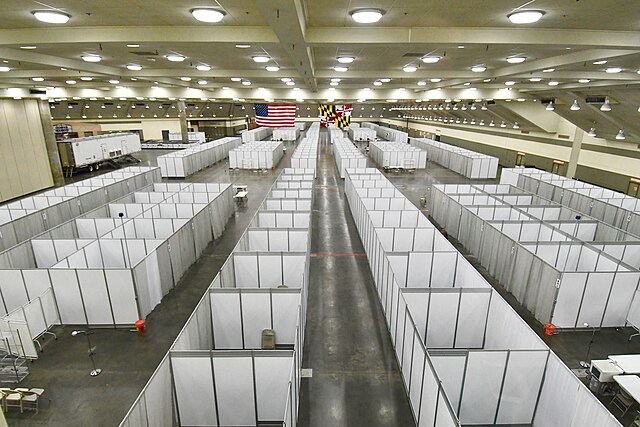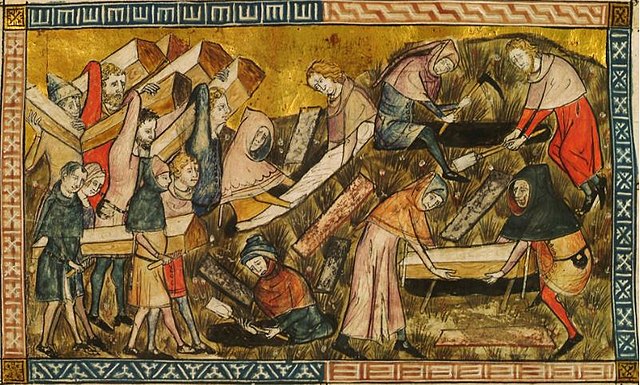Public health is "the science and art of preventing disease, prolonging life and promoting health through the organized efforts and informed choices of society, organizations, public and private, communities and individuals". Analyzing the determinants of health of a population and the threats it faces is the basis for public health. The public can be as small as a handful of people or as large as a village or an entire city; in the case of a pandemic it may encompass several continents. The concept of health takes into account physical, psychological, and social well-being.
A community health worker in Korail Basti, a slum in Dhaka, Bangladesh
The WHO is the predominant agency associated with global health.
Newspaper headlines from around the world about polio vaccine tests (13 April 1955)
A Public Health Prayer - Dr Edmond Fernandes
A pandemic is an epidemic of an infectious disease that has spread across a large region, for instance multiple continents or worldwide, affecting a substantial number of individuals. Widespread endemic diseases with a stable number of infected individuals such as recurrences of seasonal influenza are generally excluded as they occur simultaneously in large regions of the globe rather than being spread worldwide.
Early in the COVID-19 pandemic, convention centers (pictured here) were deemed to be ideal sites for temporary hospitals, due to their existing infrastructure (electrical, water, sewage). Hotels and dormitories were also considered appropriate because they can use negative pressure technology.
Depiction of the burial of bodies during the Black Death, which killed up to half of Eurasia's population in the 14th century.
American Red Cross workers carry a body during the 1918–20 "Spanish flu" pandemic.
Social distancing in public

